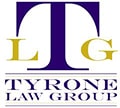It might be tough to place a monetary value on a lifetime of collecting your money, your home, its furnishings, vacation souvenirs, and treasured family gifts. It’s fun to acquire these artefacts over time, but too few people think about what will happen to them when they’re gone.
You should consider everything from your life savings to digital assets during estate planning.
While a trained professional can help guide you through the procedure, people still make plenty of mistakes.
Here are some of the common mistakes and what you should do instead to ensure the estate planning process is a smooth one for all concerned:
Forgetting to implement the estate plan
One of the most common mistakes people make in estate planning is generating estate planning paperwork but then failing to implement their estate plan.
To stay safe, create, implement and monitor the estate planning documents. Work with an established estate planning attorney to ensure the process is going as planned. As part of the estate planning process, provide copies of your documents to trustworthy loved ones.
The last thing you want is for the paperwork to get lost.
Thinking you have a lot of time
The most common error people make is believing that death only happens to other people. They don’t take their mortality seriously, or they wait until it’s too late to arrange for their loved ones.
A good way to go about it is to consider what arrangements you have in place for your legacy, consider the significance of it, and read some basic literature on the subject.
If you have the resources to acquire a burial plot and make funeral arrangements, include that information in your estate documents.
Don’t leave it up to your children to find such knowledge. If you have not already done so, you should include your wishes in your will or trust. If you do not do this, your family will have a lot to hash out after your death.
Make a point person responsible for funeral and burial arrangements and ensure that person understands your intentions. If you do not make out your wishes before your death, it may become an issue that must be resolved in probate court, which could severely delay your burial.
Ignoring the tax implications
Death and taxes are unavoidable, but taxes after death are. As kind as it may appear to be to give property to your heirs during your lifetime, it is usually smarter – and far more generous – to postpone the transfer until after your death.
If you transfer the deed to your next of kin before you die, they may face a significant tax bill if they sell the same property.
This is because the basis for that house, ranch, or condo will be tied to your purchase date, not the date of your gift.
As a result, your heirs may be forced to pay a colossal sum that could have been avoided had they been issued the deed after your death.
Leaving room for interpretation
The most severe errors occur not in how documents are written but in how they are understood after the fact.
You should have substantial, in-depth conversations with the designated trustee or given any power of attorney. This will help reduce misinterpretation of trust documents, which will work to your advantage.
Forgetting to update your estate after divorce
Unfortunately, this occurs frequently. You never change the beneficiary of your retirement account or life insurance to your ex-spouse.
Worse, following your divorce, you are forced to keep a life insurance policy for your ex-husband, but you transfer the beneficiary to your new spouse. As you can tell, this often results in costly lawsuits.
Failing to name backups for decision-makers
When tragedy strikes, even the best-laid plans can go awry. If you and your spouse are killed in the same accident, fire, or natural disaster, you should have designated a secondary beneficiary.
Make a plan to deal with unforeseeable and terrible events, and name additional/alternative beneficiaries.
Choose a backup executor and other decision-makers. If they cannot fulfil their commitments due to death, incapacity, or other circumstances, a court will appoint replacements unless you have already provided for these possibilities.
Take care of this as soon as possible and with caution. Remember that it is much easier to prepare for the unknown when you are in good physical and mental condition.
Failing to keep track of beneficiary designations
It may appear that dividing an estate among beneficiaries is simple, but it is not. Consider a parent who intends to distribute equal shares to his children. The will may specify that each child receives a certain amount.
On the other hand, if one child is named as a beneficiary on death to a bank account in an oversight or additional capacity, the child will be the sole beneficiary of the bill regardless of the will.
As a result, in addition to naming the beneficiaries and their corresponding shares in your will, you must also provide your bank with a directive outlining the interests in your account following your death.
If you don’t include this, the bank’s rules will take precedence over anything you’ve mentioned regarding that account, resulting in your total estate going in percentages that differ from those expressed in your will.
Not having an estate plan.
Lack of will or trust can result in your family members fighting in court over your intentions or having the court oversee every element of the administration.
This is especially important if you have little children who cannot inherit money. The court will appoint a guardian to hold the minor child’s inheritance and supervise how the funds are used.
You don’t want this to happen to you, do you?
To ensure this doesn’t happen, work with your estate planning lawyer Largo to develop an estate plan to protect your property and prevent your loved ones from going to court.
